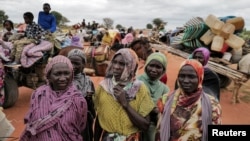It has been more than two decades since the U.N. Security Council unanimously adopted Resolution 1325, which recognized “the particular devastating ways that conflict harms women and girls,” said Secretary of State Antony Blinken at the United Nations this month.
“Combatants use rape, forced marriages, and other forms of gender-based violence as weapons of war, fighting, interrupting access to essential health services, including critical maternal care. Compared to boys, girls living in conflict zones are more than twice as likely to miss school and then less likely to return to the classroom afterward.”
“At the same time, the [U.N.] Security Council declared that women play a critical role in building peace and strengthening security,” noted Secretary Blinken.
“When peacekeeping forces include women, they’re better able to build trust with the communities they’re protecting and address the unique challenges that women and girls face in post-conflict societies. The research also shows that when women are meaningfully involved in negotiating peace agreements, there is a higher chance the deal will be reached. And those agreements, in turn, are 35 percent more likely to endure.”
“Women’s leadership is essential in times of war and in times of peace,” declared Secretary Blinken. “So, it’s imperative that the experiences and perspectives of women - in all of their diversity – are included in initiatives to deliver aid, to end conflict, and to strengthen security.”
This year, the United States is co‑chairing the Women, Peace and Security Focal Points Network, which seeks to put Resolution 1325 into action by employing new strategies, explained Secretary Blinken:
“For example, we saw the need for more collaboration at a legislative level as more countries across the globe strive to pass laws, including women and girls in matters of peace and security. So, in partnership with other governments, civil society programs, and our own congressional [Women, Peace and Security] Caucus, the United States is now helping to launch a network of women parliamentarians, and we’re calling it [the] Global WPS Caucus.”
“Through this group, we’ll build new partnerships, new exchanges. And we will strive to exchange in particular best practices,” stressed Secretary Blinken
The United States is committed to the global fight for women and girls, and the entire community that supports them.






